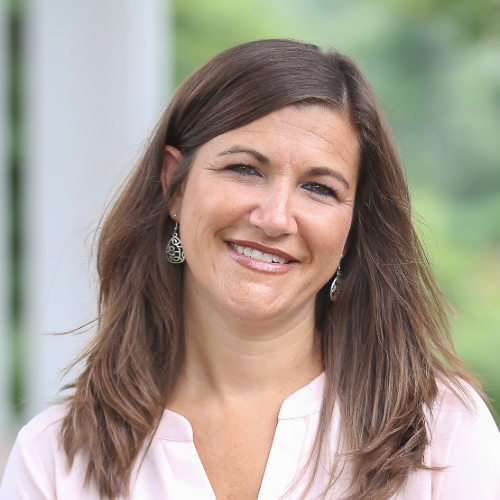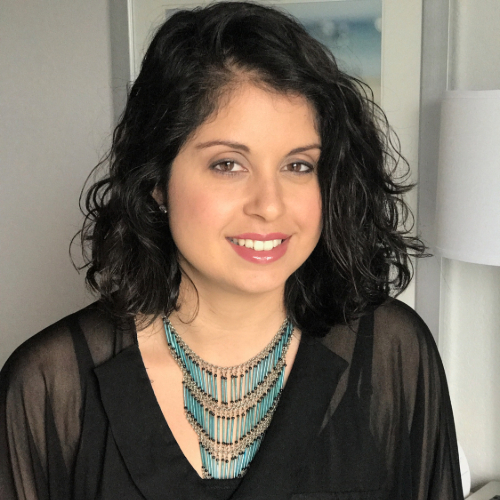Child and Teen Psychiatric Evaluation in New Jersey
Child and Teen Mental Health Treatment in NJ
Expert psychiatric evaluations for children and adolescents by board-certified psychiatrists in Red Bank and via telehealth across NJ, NY, and PA
A child and teen psychiatric evaluation at Kolli Psychiatric & Associates is a comprehensive 60 minute assessment with a board-certified, fellowship-trained psychiatrist who specializes in child, adolescent, and young adult mental health.
We don’t just prescribe medication after a brief conversation—we conduct thorough evaluations that consider your child’s symptoms, developmental history, school functioning, family dynamics, and overall well-being to provide an accurate diagnosis and personalized treatment plan. All of our providers are psychiatrists with medical degrees and specialized training in pediatric psychiatry—we do not employ nurse practitioners. Most families receive a clear diagnosis and treatment recommendations at the first visit, including medication management when clinically appropriate.
If your child or teen is struggling with anxiety, depression, ADHD, behavioral problems, school refusal, or other mental health concerns, a psychiatric evaluation can provide the clarity and expert guidance your family needs. Many parents spend months or years wondering whether their child’s difficulties are normal developmental challenges or signs of a treatable condition. Our psychiatrists help you understand what’s happening and create an evidence-based treatment plan.
We offer child and teen psychiatric evaluations in-person at our Red Bank office or via secure telehealth throughout New Jersey, New York, and Pennsylvania.
Worried about your child's mental health?
Meet our Team

Dr. Sireesha Kolli
Child, Adolescent and Adult Psychiatrist

Dr. Neha Naqvi
Child, Adolescent and Adult Psychiatrist

Dr. Pooja Tandon
Adult Psychiatrist
Schedule Your Child or Teen’s Psychiatric Evaluation
If your child or teen is struggling—at school, at home, or socially—a comprehensive psychiatric evaluation can provide the answers and treatment plan your family needs.
Call our office at 732-655-4568 or book an appointment online. We serve families in-person at our Red Bank office and via telehealth throughout New Jersey, New York, and Pennsylvania. We see children and teens from across Monmouth County including Freehold, Marlboro, Rumson, Middletown, Holmdel, and surrounding communities.
Ready to help your child feel better?
Let’s figure out what’s going on—and create a plan that works for your family.
What Happens During a Child or Teen Psychiatric Evaluation
The evaluation typically includes:
Parent interview (20-30 minutes) – We meet with parents first to discuss your child’s symptoms, developmental history, medical history, school functioning, family history of mental health conditions, and what prompted you to seek evaluation. This gives us important context without your child present.
Child or teen interview (20-40 minutes depending on age) – We meet with your child or adolescent to understand their perspective, assess symptoms, and build rapport. For younger children, this may include play-based observation. For teens, we often meet with them privately to discuss their experiences, with their permission.
Review of records – We review any available school reports, report cards, IEP or 504 documents, previous psychological testing, or medical records that help inform the diagnosis.
Clinical assessment – We assess for ADHD, anxiety disorders, depression, OCD, behavioral disorders, autism spectrum considerations, learning differences, trauma, and other conditions that may be affecting your child.
Your psychiatrist will explore:
- Current symptoms and behaviors—at home, at school, and with peers
- When symptoms started and how they’ve changed over time
- Your child’s developmental milestones and early childhood history
- School performance, behavior in the classroom, and relationships with teachers and peers
- Social functioning—friendships, social anxiety, bullying, or social skills challenges
- Family dynamics, stressors at home, major life transitions, or trauma history
- Sleep patterns, eating habits, physical health, and any medications or supplements
- Strengths, interests, and what’s going well in your child’s life
- Family history of ADHD, anxiety, depression, learning disabilities, or other conditions
- Your goals for treatment and what you hope will improve
Together, we’ll determine:
- An accurate psychiatric diagnosis (or multiple diagnoses if warranted)
- Whether medication, therapy, school accommodations, or a combination is recommended
- What specific interventions will help your child function better at home, school, and socially
- Whether additional evaluations (neuropsychological testing, educational testing) would be helpful
- How to coordinate care with your child’s therapist, pediatrician, and school
After Your Child’s Evaluation: Creating a Treatment Plan
Clear diagnosis and explanation – Your psychiatrist will explain your child’s diagnosis in understandable terms, answer all your questions, and discuss what it means for treatment and prognosis.
Personalized treatment plan – Treatment may include medication, therapy referrals (we can recommend excellent child/teen therapists), school accommodations, parent coaching, behavioral strategies, or a combination of approaches.
Medication started same-day if appropriate – If medication is clinically indicated, we’ll prescribe it the same day after thoroughly discussing how it works, potential side effects, dosing, and what to expect. We only recommend medication when it’s medically necessary and will meaningfully improve your child’s functioning.
School accommodation support – We provide documentation for IEPs, 504 plans, or other school accommodations when needed, and can communicate with school personnel when helpful.
Follow-up scheduled in 2-4 weeks – For children starting medication, we schedule close follow-up to monitor effectiveness, side effects, and make any needed adjustments. We also check in about how things are going at school and home.
Coordination with other providers – We work closely with your child’s therapist, pediatrician, school counselor, or other professionals involved in their care to ensure everyone is aligned.
Parent guidance and education – We provide guidance on behavioral strategies, how to talk to your child about their diagnosis, and how to support their treatment at home.
Child and adolescent mental health conditions are highly treatable. With proper diagnosis and treatment, most children and teens show significant improvement in mood, behavior, school performance, and relationships.
Why Red Bank Families Choose Kolli Psychiatric for Child and Teen Evaluations
Board-certified psychiatrists specializing in child and adolescent mental health
All of our providers are board-certified, fellowship-trained psychiatrists with specialized expertise in child, adolescent, and young adult psychiatry. This means 12+ years of medical and psychiatric training, including intensive fellowship training specifically in pediatric mental health. We do not employ nurse practitioners. This level of expertise matters when diagnosing complex cases, managing medication in developing brains, and distinguishing between overlapping conditions.
Comprehensive evaluations, not quick medication visits
We take the time to conduct thorough evaluations that consider your child’s complete developmental, medical, family, and school history. We don’t rush to prescribe medication after a 15-minute visit. Our goal is accurate diagnosis first, then the right treatment—which may or may not include medication.
Expertise in ADHD, anxiety, depression, OCD, and complex cases
We diagnose and treat the full spectrum of child and adolescent psychiatric conditions, including ADHD, anxiety disorders, depression, OCD, behavioral disorders, autism spectrum considerations, trauma, bipolar disorder, and more. We’re skilled at managing complex cases involving multiple diagnoses, medication sensitivities, or children who haven’t responded to previous treatments.
School accommodation documentation and support
We provide comprehensive documentation for IEPs, 504 plans, extended time on tests, classroom accommodations, and other school supports. We understand the process and can communicate with school personnel when needed to ensure your child gets appropriate accommodations.
Family-centered care with parent involvement
We believe parents are essential partners in treatment. We involve you in every decision, provide education about your child’s condition, and offer guidance on behavioral strategies and how to support treatment at home. For teens, we balance their need for privacy with keeping parents appropriately informed.
Safe, evidence-based medication management for children and teens
When medication is appropriate, we prescribe only FDA-approved medications with strong safety and efficacy data for children and adolescents. We start with low doses, monitor closely, and adjust carefully. We also discuss non-medication alternatives and never pressure families to choose medication if they’re uncomfortable.
Convenient Red Bank location plus telehealth
Choose from in-person visits at our Red Bank office or meet with your child’s psychiatrist via secure telehealth from anywhere in New Jersey, New York, or Pennsylvania. Telehealth can be especially helpful for teens who prefer the privacy of appointments from home, or for families with busy schedules.
Collaborative care with therapists, pediatricians, and schools
We work closely with your child’s therapist, pediatrician, school counselor, and other providers. Many children benefit from both medication management (with us) and weekly therapy (with a therapist), and we coordinate care to ensure everyone is working toward the same goals.
Insurance-friendly out-of-network practice
We partner with Thrizer to handle your out-of-network insurance billing. Many families receive significant reimbursement and only pay their copay after meeting their deductible. Child and adolescent psychiatric services are typically covered mental health benefits.
Book Appointments with Psychiatrist in Red Bank, Freehold, New Jersey
Serving Red Bank, Freehold, Rumson, Lincroft, Tinton Falls, Middletown, Manalapan, Marlboro, Ocean county, Monmouth county, Little Silver, NJ and NYC
Conditions We Treat
Common Mental Health Conditions We Diagnose and Treat in Children and Teens in New Jersey
ADHD (Attention-Deficit/Hyperactivity Disorder) is one of the most common reasons families seek evaluation. Children with ADHD struggle with attention, focus, organization, impulse control, or hyperactivity in ways that affect school performance and home life. ADHD in children often looks like difficulty completing homework, trouble following multi-step directions, forgetfulness, losing things, interrupting others, fidgeting, or difficulty sitting still. ADHD is highly treatable with medication, behavioral strategies, and school accommodations.
Anxiety disorders in children and teens include generalized anxiety, separation anxiety, social anxiety, panic disorder, and specific phobias. Anxiety may show up as excessive worry, physical symptoms (stomachaches, headaches), school refusal, difficulty sleeping, avoidance of social situations, or panic attacks. Many children and teens with anxiety appear to be “perfectionists” or “worriers” but are actually experiencing clinically significant anxiety that interferes with their functioning.
Depression in children and adolescents often looks different than adult depression. Children may appear irritable rather than sad, lose interest in activities they used to enjoy, withdraw from friends and family, struggle academically, or have changes in sleep and appetite. Teens with depression may seem unmotivated, experience low self-esteem, or have thoughts of self-harm. Depression is highly treatable with medication, therapy, or both.
OCD (Obsessive-Compulsive Disorder) involves intrusive, unwanted thoughts (obsessions) and repetitive behaviors or mental rituals (compulsions) that the child feels driven to perform. Common themes include contamination fears, perfectionism, intrusive thoughts about harm, or need for symmetry. OCD in children is often hidden because they feel ashamed of their thoughts. Treatment typically includes medication and specialized therapy (exposure and response prevention).
Oppositional Defiant Disorder and behavioral problems involve patterns of angry, defiant, or vindictive behavior that goes beyond normal childhood testing of boundaries. Children may refuse to follow rules, argue with adults, deliberately annoy others, or have frequent tantrums. Often there’s an underlying condition—ADHD, anxiety, trauma, learning disability—driving the behavior. Accurate diagnosis is essential for effective treatment.
School refusal and academic problems can stem from anxiety, depression, ADHD, learning disabilities, bullying, or social difficulties. We help determine what’s driving school avoidance and create a plan to get your child back on track, which may include medication, therapy, school accommodations, or addressing underlying learning challenges.
Social anxiety and selective mutism involve intense fear of social situations or inability to speak in certain settings (like school) despite speaking normally at home. These conditions significantly impact a child’s ability to participate in school and social activities and are highly treatable with medication and therapy.
Trauma and PTSD in children can result from abuse, neglect, witnessing violence, accidents, medical trauma, or other frightening experiences. Children with trauma may have nightmares, flashbacks, behavioral problems, difficulty trusting others, or seem constantly on edge. Trauma-informed psychiatric care addresses both the symptoms and the underlying trauma.
Autism spectrum considerations – While we don’t diagnose autism, we evaluate and treat co-occurring psychiatric conditions in children with autism, including anxiety, OCD, ADHD, mood disorders, and behavioral challenges. We understand how to adapt treatment for neurodivergent children.
Tics and Tourette Syndrome – We evaluate and treat tic disorders, including medication management when tics interfere with functioning or cause distress. Many children with tics also have ADHD or OCD, which we treat comprehensively.
Mood disorders including bipolar disorder – While rare in young children, mood disorders can emerge in adolescence. We carefully evaluate mood symptoms, distinguish between depression and bipolar disorder, and provide appropriate treatment.
How to Know When Your Child or Teen Needs Psychiatric Evaluation
Consider seeking evaluation if your child is experiencing:
- Difficulty focusing, completing schoolwork, or staying organized that affects grades
- Excessive worry, fear, or anxiety that interferes with daily activities
- School refusal, frequent crying before school, or physical complaints to avoid school
- Persistent sadness, irritability, or loss of interest in activities they used to enjoy
- Behavioral problems at home or school—defiance, aggression, tantrums beyond typical age
- Social withdrawal, difficulty making or keeping friends, or being bullied
- Intrusive thoughts, repetitive behaviors, or rituals that seem excessive
- Changes in sleep, appetite, or energy that persist for weeks
- Academic decline that isn’t explained by laziness or lack of effort
- Self-harm behaviors, talk of suicide, or expressing that life isn’t worth living
- Extreme mood swings or explosive anger out of proportion to the situation
- Trauma history and subsequent behavioral or emotional changes
- Your pediatrician, teacher, or school counselor has recommended psychiatric evaluation
- Previous therapy hasn’t helped, or your child’s therapist has recommended medication evaluation
- Family history of ADHD, anxiety, depression, or other psychiatric conditions and you’re seeing similar patterns
If your instinct tells you something’s not right, trust it. Early intervention leads to better outcomes. You know your child best.
Compassionate Women’s Mental Health Care in Red Bank and Monmouth County
Many women in Red Bank, Freehold, Marlboro, and throughout Monmouth County feel guilty about prioritizing their mental health, especially mothers who feel they should be able to “handle everything.” Here’s the truth:
Taking care of your mental health is taking care of your family. When you’re struggling with untreated depression, anxiety, or other mental health conditions, it affects your ability to be present, patient, and engaged. Getting treatment isn’t selfish—it’s essential.
Postpartum mood disorders aren’t your fault. They’re medical conditions caused by hormonal changes, sleep deprivation, and biological vulnerability. Women throughout New Jersey seek our care because they recognize that asking for help is a sign of strength, not failure.
You don’t have to suffer through hormonal mood changes. Severe PMS, PMDD, and perimenopause symptoms are treatable medical conditions. Women in Monmouth County no longer accept feeling terrible for one or two weeks every month—and neither should you.
Medication during pregnancy isn’t automatically dangerous. For many women, continuing or starting psychiatric medication during pregnancy is the safest choice for both mother and baby. Untreated mental illness carries its own risks, and many medications have excellent safety data. Our reproductive psychiatry expertise helps you make informed decisions.
Helping Your Child or Teen Access the Mental Health Care They Need in Monmouth County
Mental health conditions in children are medical conditions. ADHD, anxiety, depression, and OCD involve brain chemistry and neurodevelopment—they’re not caused by bad parenting or lack of discipline. Seeking evaluation is responsible parenting, not overreacting.
Medication isn’t always the answer. Sometimes therapy, school accommodations, or parent coaching is sufficient. But when medication is needed, it can be life-changing—helping your child focus in school, manage overwhelming anxiety, or lift out of debilitating depression. We only recommend medication when the benefits clearly outweigh the risks.
Early intervention changes trajectories. Children who receive appropriate treatment early are more likely to succeed academically, develop healthy relationships, and avoid more serious problems later. Waiting to see if they “grow out of it” can mean years of unnecessary suffering.
You’re not alone. Millions of children and teens experience mental health conditions. In many Monmouth County schools, 15-20% of students have IEPs or 504 plans for ADHD, anxiety, or other conditions. Seeking help is increasingly common and accepted.
Your child’s privacy matters. For teens especially, we maintain confidentiality within appropriate limits. We balance their need for privacy with keeping you informed about important health information and treatment decisions.
Frequently Asked Questions About Child and Teen Psychiatric Evaluations
What age children do you evaluate and treat?
We evaluate and treat children, adolescents, and young adults from early childhood through college age. Our psychiatrists are fellowship-trained in child, adolescent, and adult psychiatry, so we can provide care across developmental stages. The youngest age we typically evaluate is around 4-5 years old, though this depends on the specific concerns and whether a young child can meaningfully participate in the evaluation.
How long does a child or teen psychiatric evaluation take?
The initial evaluation typically takes 60-90 minutes total. This usually includes 20-30 minutes meeting with parents, 20-40 minutes with your child or teen, and time for discussion and treatment planning. For younger children, the child portion may be shorter with more observation. For teens, we may spend more time with them directly. Follow-up medication management visits are typically 20-30 minutes.
Should I be in the room during my child’s evaluation?
For younger children (under 10-12), parents are typically present for most or all of the evaluation. For adolescents and teens, we usually meet with parents first, then spend time alone with your teen to give them space to share their perspective. This helps teens feel more comfortable discussing sensitive topics. We’ll always include you in treatment planning and discuss what was covered in the session at an age-appropriate level.
Where can I find a child psychiatrist near me in Red Bank or Monmouth County?
Kolli Psychiatric & Associates provides expert child and adolescent psychiatric evaluations in Red Bank, NJ, serving families throughout Monmouth County including Freehold, Marlboro, Rumson, Middletown, Holmdel, and surrounding areas. Our board-certified, fellowship-trained psychiatrists specialize in child and teen mental health and offer both in-person appointments at our Red Bank office and telehealth throughout New Jersey, New York, and Pennsylvania.
Will my child be prescribed medication at the first visit?
Only if medication is clinically appropriate and you’re comfortable proceeding. We never pressure families to choose medication. If medication is recommended, we’ll thoroughly explain why, how it works, potential side effects, alternatives, and what to expect. Many families choose to start medication the same day if the diagnosis is clear and benefits outweigh risks. Others prefer to think about it or try other interventions first. The decision is always collaborative.
What if I’m concerned about medication side effects or putting my child on psychiatric medication?
These concerns are completely normal and understandable. We’ll discuss all the risks and benefits of medication, alternative treatments, and what happens if symptoms go untreated. For conditions like ADHD, anxiety, and depression, there’s strong evidence that medication can significantly improve functioning and quality of life.
We use medications with the best safety profiles for children, start with low doses, and monitor closely. Many parents find that their concerns about medication are outweighed by the relief of seeing their child finally able to focus in school, manage anxiety, or enjoy life again.
How do I know if my child has ADHD or just typical childhood behavior?
ADHD is diagnosed based on patterns of inattention, hyperactivity, or impulsivity that are more severe than expected for your child’s developmental level, present in multiple settings (home and school), and significantly impair functioning.
Typical childhood behavior involves occasional forgetfulness or high energy, but children without ADHD can focus when motivated and their behavior doesn’t consistently interfere with school, friendships, or family life. Our comprehensive evaluation distinguishes between ADHD and normal development, and rules out other conditions like anxiety or learning disabilities that can mimic ADHD.
Can you provide documentation for school accommodations or IEP meetings?
Yes. We provide comprehensive documentation for IEPs, 504 plans, extended time on tests, preferential seating, modified assignments, and other school accommodations. Our letters include diagnosis, how the condition impacts learning, and specific recommended accommodations.
We can also participate in IEP meetings via phone when needed, though there may be an additional fee for extended school consultation time.
Do you coordinate with my child’s therapist and school?
Yes, collaborative care is essential for children and teens. With your permission, we communicate with your child’s therapist to coordinate treatment goals and ensure medication and therapy are working together effectively. We also communicate with school counselors, psychologists, or case managers when helpful for implementing accommodations or understanding your child’s school functioning.
Many children benefit from both medication management (with us) and weekly therapy (with a therapist).
What’s the difference between a psychiatrist and a psychologist for my child?
Psychiatrists are medical doctors who diagnose mental health conditions and prescribe medication. Psychologists have doctoral degrees in psychology and provide therapy and psychological testing but cannot prescribe medication. At Kolli Psychiatric, all our providers are board-certified psychiatrists.
We focus on comprehensive evaluation, diagnosis, and medication management, and we refer to excellent child therapists for ongoing therapy when needed. Many children benefit from seeing both a psychiatrist and a therapist.
Can my child do the evaluation via telehealth?
Yes. We offer secure, HIPAA-compliant telehealth evaluations for children and teens throughout New Jersey, New York, and Pennsylvania. Telehealth works well for many children and teens, especially adolescents who may be more comfortable in their own environment. For younger children, telehealth can sometimes be challenging if they have difficulty sitting still or engaging through a screen, but many families find it very convenient. You can decide what works best for your child.
How soon can I schedule an evaluation for my child or teen?
We typically have availability for new patient child and adolescent evaluations within 1-2 weeks. Call our office at 732-655-4568 or request an appointment online, and our team will match you with a psychiatrist who specializes in pediatric mental health—either in-person at our Red Bank office or via telehealth.
What if my teenager doesn’t want to come to the appointment?
This is common, especially if your teen doesn’t think anything is wrong or feels forced into treatment. We’re experienced in engaging reluctant teens and creating a non-judgmental environment where they feel heard. Sometimes it helps to frame it as “we’re going to talk to a doctor who can help figure out what’s going on” rather than “you’re going to see a psychiatrist because something’s wrong with you.”
During the evaluation, we respect their perspective and involve them in decisions about treatment.
Do you treat children with autism who have mental health concerns?
Yes. While we don’t diagnose autism spectrum disorder (that requires specialized developmental evaluation), we evaluate and treat co-occurring psychiatric conditions in children with autism, including anxiety, OCD, ADHD, mood disorders, sleep problems, and behavioral challenges.
We understand how to adapt communication and treatment approaches for neurodivergent children and work closely with your child’s other providers.
Is child and teen psychiatric care covered by insurance?
Kolli Psychiatric & Associates is an out-of-network practice, but child and adolescent psychiatric services are typically covered as out-of-network mental health benefits.
We partner with Thrizer to handle your insurance billing, and many families receive significant reimbursement. After meeting your deductible, you often only pay your copay for visits. We provide detailed superbills for all major insurance carriers.
What if my child has been in therapy but isn’t improving?
Sometimes therapy alone isn’t enough, especially for conditions like ADHD, moderate to severe anxiety, or depression. Medication can provide the neurochemical foundation that allows therapy to be more effective. Other times, the diagnosis may need to be reconsidered or the therapy approach adjusted. Our evaluation can help determine whether medication would help, whether a different diagnosis explains the lack of progress, or whether other interventions are needed.

























